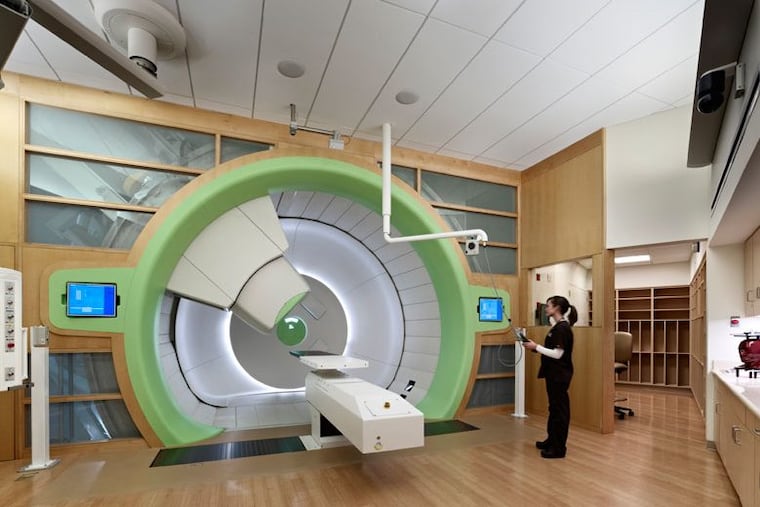Penn study: Insurance policies should be revised to cover costly proton therapy for pediatric cancer
Proton therapy is more expensive than conventional radiation, so insurance policies generally reject it for pediatric cancer. But a Penn study found that insurers almost always agree to pay for it, either initially or on appeal, suggesting that policies should be revised to explicitly allow it.

Health insurers almost always agree to pay for proton therapy for pediatric cancer patients, either initially or on appeal, suggesting that policies should be revised to explicitly allow the expensive treatment, a University of Pennsylvania study concludes.
Because protons stop within a target, the particles can kill a tumor while sparing healthy tissue. That's particularly important for growing children. But proton therapy is more expensive than conventional radiation and has not been proven superior by definitive studies, so insurance policies generally reject or restrict it for pediatric cancer.
In practice, though, the new study found wide acceptance. The researchers reviewed records from 287 pediatric cancer patients who sought treatment at Penn's Roberts Proton Therapy Center between 2010 and 2015. The 36 insurance companies outright approved 255 cases, or 89 percent. Of the remaining 32 cases that were denied, all but one was approved on appeal.
But those appeals delayed care by an average of a week while letters, records, and phone calls were exchanged.
"This shows insurers are ultimately willing to accept the benefits of proton therapy for young cancer patients," said Penn radiation oncologist Christine Hill-Kayser, a coauthor of the study published this week in the journal Pediatric Blood and Cancer. "However, a great deal of time and resources are wasted in appeals of coverage denials."
Her coauthor, Penn radiation oncologist Eric Ojerholm, said that in some cases, a week's delay can also disrupt the prescribed schedule of chemotherapy and radiation.
The researchers found that insurers were more likely to deny coverage initially if the child had a cancer located outside the brain or spine, organs where the benefits of proton therapy have clearly been shown.
Patients over age 18 also were more likely to be denied, based on arbitrary age cutoffs. On appeal, their doctors explained that some young adult cancers are considered pediatric malignancies because of how the tumors behave. These include neuroblastoma, germinoma, and Ewing sarcoma.
Special insurance forms or codes could be created so that doctors could flag these atypical pediatric tumors, the researchers suggested.
Asked for reaction, the National Association of Insurance Commissioners, which works with state insurance regulators to set standards, said it had not reviewed the study, "but takes consumer protection and fair application of insurance policies seriously."
Ojerholm said the study should be repeated at other proton centers to make sure the results can be generalized. One unusual aspect of Penn's program that might increase the chance of insurance coverage: all pediatric cases are first screened for appropriateness by a committee of specialists.
"But if this research is replicated and we find that nearly all pediatric cases are ultimately being approved," Ojerholm said, "we could take the data to insurance companies" to talk about revising coverage policies.